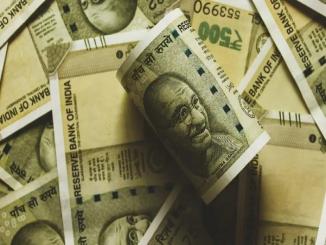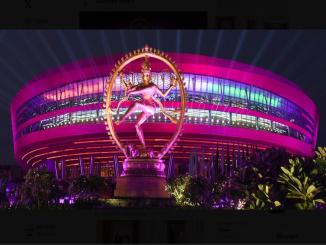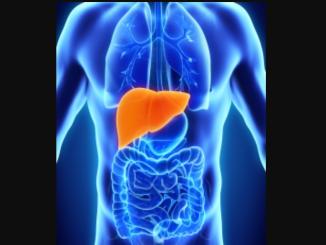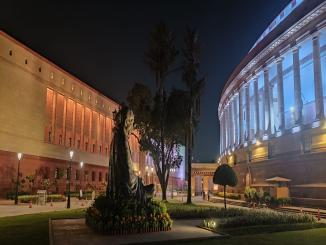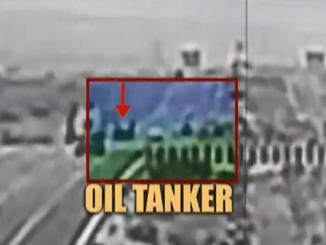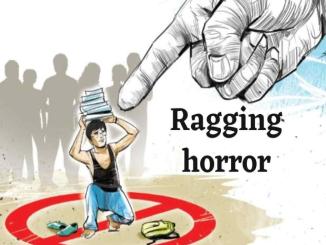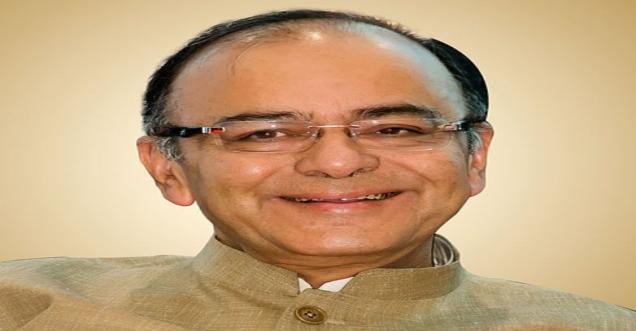
New Delhi, Arun Jaitley: Part 2
156. In order to make MSME companies more viable and also to encourage firms to migrate to company format, I propose to reduce the income tax for smaller companies with annual turnover upto Rs 50 crore to 25%. As per data of Assessment Year 2015-16, there are 6.94 lakh companies filing returns of which 6.67 lakh companies fall in this category and, therefore, percentage-wise 96% of companies will get this benefit of lower taxation. This will make our MSME sector more
158. Considering the wide range of use of LNG as fuel as well as feed stock for petro-chemicals sector, I propose to reduce the basic customs duty on LNG from 5% to 2.5%.
159. In order to incentivise domestic value addition and to promote Make in India, I propose to make changes in Customs & Central Excise duties in respect of certain items which are given in the Annex III of this speech. Some of these proposals are also for addressing duty inversion.
Promoting Digital Economy
160. There is a scheme of presumptive income tax for small and medium tax payers whose turnover is upto Rs 2 crores. At present, 8% of their turnover is counted as presumptive income. I propose to make this 6% in respect of turnover which is received by non-cash means. This benefit will be applicable for transactions undertaken in the current year also.
161. I propose to limit the cash expenditure allowable as deduction, both for revenue as well as capital expenditure, to Rs 10,000. Similarly, the limit of cash donation which can be received by a charitable trust is being reduced from Rs 10,000/- to Rs 2000/-.
162. The Special Investigation Team (SIT) set up by the Government for black money has suggested that no transaction above Rs 3 lakh should be permitted in cash. The Government has decided to accept this proposal. Suitable amendment to the Income-tax Act is proposed in the Finance Bill for enforcing this decision.
163. To promote cashless transactions, I propose to exempt BCD, Excise/CV duty and SAD on miniaturised POS card reader for m-POS, micro ATM standards version 1.5.1, Finger Print Readers/Scanners and Iris Scanners. Simultaneously, I also propose to exempt parts and components for manufacture of such devices, so as to encourage domestic manufacturing of these devices.
Transparency in Electoral Funding
164. India is the world’s largest democracy. Political parties are an essential ingredient of a multi-party Parliamentary democracy. Even 70 years after Independence, the country has not been able to evolve a transparent method of funding political parties which is vital to the system of free and fair elections. An attempt was made in the past by amending the provisions of the Representation of Peoples Act, the Companies Act and the Income Tax Act to incentivise donations by individuals, partnership firms, HUFs and companies to political parties. Both the donor and the donee were granted exemption from payment of tax if the accounts were transparently maintained and returns were filed with the competent authorities. Additionally, a list of donors who contributed more than Rs 20,000/- to any party in cash or cheque is required to be maintained. The situation has only marginally improved since these provisions were brought into force. Political parties continue to receive most of their funds through anonymous donations which are shown in cash.
165. An effort, therefore, requires to be made to cleanse the system of political funding in India. Donors have also expressed reluctance in donating by cheque or other transparent methods as it would disclose their identity and entail adverse consequences. I, therefore, propose the following scheme as an effort to cleanse the system of funding of political parties:
a) In accordance with the suggestion made by the Election Commission, the maximum amount of cash donation that a political party can receive will be Rs 2000/- from one person.
b) Political parties will be entitled to receive donations by cheque or digital mode from their donors.
c) As an additional step, an amendment is being proposed to the Reserve Bank of India Act to enable the issuance of electoral bonds in accordance with a scheme that the Government of India would frame in this regard. Under this scheme, a donor could purchase bonds from authorised banks against cheque and digital payments only. They shall be redeemable only in the designated account of a registered political party. These bonds will be redeemable within the prescribed time limit from issuance of bond.
d) Every political party would have to file its return within the time prescribed in accordance with the provision of the Income-tax Act.
Needless to say that the existing exemption to the political parties from payment of income-tax would be available only subject to the fulfilment of these conditions. This reform will bring about greater transparency and accountability in political funding, while preventing future generation of black money.
Ease of Doing Business
166. As an anti-avoidance measure, the provision of domestic transfer pricing in respect of related entities was brought in the Finance Act of 2012. Since then the number of entities being covered under domestic pricing has gone up substantially necessitating a longer scrutiny, which causes hardship to domestic companies. In order to reduce the compliance burden due to domestic transfer pricing provisions, I propose to restrict the scope of domestic transfer pricing only if one of the entities involved in related party transaction enjoys specified profit-linked deduction.
167. I propose to increase the threshold limit for audit of business entities who opt for presumptive income scheme from Rs 1 crore to Rs 2 crores. Similarly, the threshold for maintenance of books for individuals and HUF is being increased from turnover of Rs 10 lakhs to Rs 25 lakhs or income from Rs 1.2 lakhs to Rs 2.5 lakhs.
168. In 2012, Income-tax Act was amended to provide for taxation of those transactions of transfer of shares or interest in a foreign entity deriving its value substantially from Indian assets. Apprehensions have been raised about some difficulties which arise because of this provision in case of transfer of stake of investors of India-based funds located abroad but investing in India-based companies.
169. In order to remove this difficulty, I propose to exempt Foreign Portfolio Investor (FPI) Category I & II from indirect transfer provision. I also propose to issue a clarification that indirect transfer provision shall not apply in case of redemption of shares or interests outside India as a result of or arising out of redemption or sale of investment in India which is chargeable to tax in India.
170. As on today, a TDS of 5% is being deducted from commission payable to individual insurance agents even if the income of some of them may be below taxable limit. I propose to exempt them from the requirement of TDS subject to their filing a self-declaration that their income is below taxable limit.
171. Last year, I had announced a new scheme for presumptive taxation for professionals with receipt upto Rs 50 lakhs p.a. In respect of such assesses, they are being given further benefit in terms of paying advance tax in one instalment instead of four.
172. In order to allow the people to claim the refund expeditiously, the time period for revising a tax return is being reduced to 12 months from completion of financial year, at par with the time period for filing of return. Also the time for completion of scrutiny assessments is being compressed further from 21 months to 18 months for Assessment Year 2018-19 and further to 12 months for Assessment Year 2019-20 and thereafter.
Personal Income-Tax
173. While the Government is trying to bring within tax-net more people who are evading taxes, the present burden of taxation is mainly on honest tax payers and salaried employees who are showing their income correctly. Therefore, post-demonetisation, there is a legitimate expectation of this class of people to reduce their burden of taxation. Also an argument is made that if a nominal rate of taxation is kept for lower slab, many more people will prefer to come within the tax net.
174. I, therefore, propose to reduce the existing rate of taxation for individual assesses between income of Rs 2.5 lakhs to Rs 5 lakhs to 5% from the present rate of 10%. This would reduce the tax liability of all persons below Rs 5 lakh income either to zero (with rebate) or 50% of their existing liability. In order not to have duplication of benefit, the existing benefit of rebate available to the same group of beneficiaries is being reduced to Rs 2500 available only to assessees upto income of Rs 3.5 lakhs. The combined effect of both these measures will mean that there would be zero tax liability for people getting income upto Rs 3 lakhs p.a. and the tax liability will only be Rs 2,500 for people with income between Rs 3 and Rs 3.5 lakhs. If the limit of Rs 1.5 lakh under Section 80C for investment is used fully the tax would be zero for people with income of Rs 4.5 lakhs. While the taxation liability of people with income upto Rs 5 lakhs is being reduced to half, all the other categories of tax payers in the subsequent slabs will also get a uniform benefit of Rs 12,500/- per person. The total amount of tax foregone on account of this measure is Rs 15,500 crores.
175. In order to make good some of this revenue loss on account of this relief, I propose to levy a surcharge of 10% of tax payable on categories of individuals whose annual taxable income is between Rs 50 lakhs and Rs 1 crore. The existing surcharge of 15% of Tax on people earning more than Rs 1 crore will continue. This is likely to give additional revenue of Rs 2,700 crores.
176. In order to expand tax net, I also plan to have a simple one-page form to be filed as Income Tax Return for the category of individuals having taxable income upto Rs 5 lakhs other than business income. Also a person of this category who files income tax return for the first time would not be subjected to any scrutiny in the first year unless there is specific information available with the Department regarding his high value transaction. I appeal to all citizens of India to contribute to Nation Building by making a small payment of 5% tax if their income is falling in the lowest slab of Rs 2.5 lakhs to Rs 5 lakhs.
177. Some other important proposals for amendment in Tax Laws which are not covered by me in my speech are given in Annex III of this speech.
Goods and Services Tax
178. There has been substantial progress towards ushering in GST, by far, the biggest tax reform since independence. Since the enactment of the Constitution (One Hundred and First Amendment) Act, 2016, the preparatory work for this path-breaking reform has been a top priority for the Government. In this context, several teams of officers both from the States and Central Board of Excise and Customs have been working tirelessly to give finishing touch to the Model GST law and rules and other details. Government on its part has promptly given effect to various provisions of the Constitutional Amendment Act, including constitution of the GST Council. Since then, the GST Council held 9 meetings to discuss various issues relating to GST, including broad contours of the GST rate structure, threshold exemption and parameters for composition scheme, details for compensation to States due to implementation of GST, examination of draft model GST law, draft IGST law and the Compensation Law and administrative mechanism for GST. It is my privilege to inform this august house that the GST Council has finalised its recommendations on almost all the issues based on consensus and after spirited debate and discussions. The preparation of IT system for GST is also on schedule. The extensive reach-out efforts to trade and industry for GST will start from 1st April, 2017 to make them aware of the new taxation system.
179. Centre, through the Central Board of Excise & Customs, shall continue to strive to achieve the goal of implementation of GST as per schedule without compromising the spirit of co-operative federalism. Implementation of GST is likely to bring more taxes both to Central and State Governments because of widening of tax net. I have preferred not to make many changes in current regime of Excise & Service Tax because the same are to be replaced by GST soon.
RAPID
180. In the Annual Conclave of Tax officers called ‘Rajaswa Gyan Sangam’ held in June 2016, the Prime Minister had expressed his desire to bring reforms in tax administration in the form of an approach of RAPID which stands for Revenue, Accountability, Probity, Information and Digitisation. This approach precisely reflects the strategy of Tax Department which is now formulated. While revenue considerations always remain the focus of Revenue Department, we are trying to bring in maximum use of Information Technology to remove human contact with assesses as well as to plug tax avoidance. We will try to maximise our efforts for e-assessment in the coming year. We are also using a lot of data mining capability, both in-house and outsourced. We plan to enforce greater accountability of officers of Tax Department for specific act of commission and omission. I would like to assure everyone that honest, tax-compliant person would be treated with dignity and courtesy.
181. Madam Speaker, my direct tax proposals for exemptions, etc. would result in revenue loss of Rs 22,700 crore but after counting for revenue gain of Rs 2,700 crore for additional resource mobilisation proposal, the net revenue loss in direct tax would come to Rs 20,000 crore. There is no significant loss or gain in my indirect tax proposals.
CONCLUSION
182. Madam Speaker, I have outlined the Budget proposals under our overarching agenda: “Transform, Energise and Clean India”. Our emphasis will now be on implementing all these proposals for the benefit of the farmers, the poor and the underprivileged sections of our society.
183. Madam Speaker, it is said: “When my aim is right, when my goal is in sight, the winds favour me and I fly”. There is no other day, which is more appropriate for this, than today.
184. With these words, Madam Speaker, I commend the Budget to the House.
Finance Minister Arun Jaitley Full speech of Union Budget 2017-Part 1





